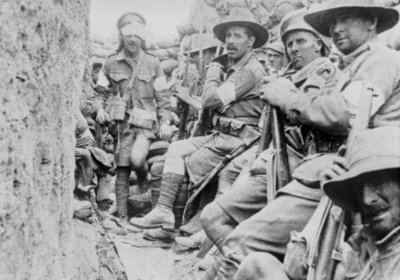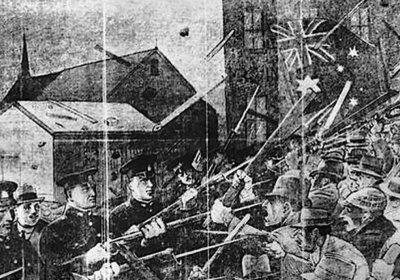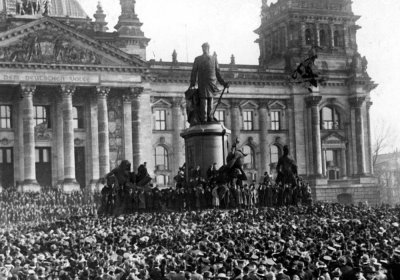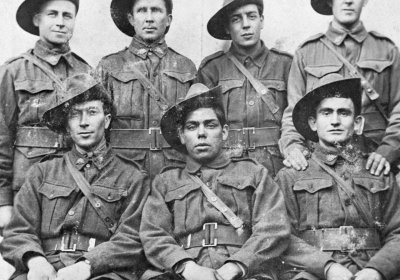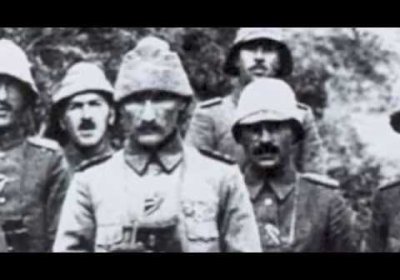The tradition of ANZAC has done nothing to make Australian cautious, reflective and wise in sending troops to war, argues Binoy Kampmark.
World War I
One hundred years after the Red flag Riots, Jim McIlroy looks at the polarisation after World War I, in which far-right aggression was incited by governments and “respectable” political forces.
The 100th anniversary of Armistice Day, November 11, was commemorated in Sydney with a series of events highlighting the struggles of the peace movement over the past century.
Armistice Day marks the date of the ceasefire between the opposing imperialist powers that officially ended World War I.
November 11 marks the 100th anniversary of the end of World War I, but not before tens of millions died in the four-year-long unprecedented industrial carnage. Amid all the media coverage, almost entirely missing is the actual story of how such bloodshed and misery was ended: by a mass popular rebellion in Germany that brought down the monarchy and established a republic.
On a cold, wet November morning in the village of Rocles in central France, I attended a World War I centenary event unlike any I had seen before.
In the town square there is a small war memorial with a marble plaque listing the district's fallen sons, much as you find in every locality across France and Australia.
However, on closer examination, this one is a bit different. Instead of "Vive la France", it has palm leaves engraved in the stone, slogans calling for peace and acknowledges all the victims of war. How could this be?
In July 1915, three brothers presented themselves at Glencorse Barracks on the outskirts of Edinburgh to enlist in the Royal Scots. The First World War was almost a year old, but despite the mounting casualty lists and a growing realisation that it would not be over anytime soon, my grandfather and his two brothers joined up.
FIFA, the world’s ruling body of football (soccer), has banned wearing poppies to mark the death of British soldiers in war, which has provoked a confected outrage by British media and politicians.
The football associations of England and Scotland intend to defy the ban in the two national teams’ match on Armistice Day on November 11. In the editorial below, British left-wing daily The Morning Star responds to the hypocrisy of those opposing FIFA’s ruling. ***
On October 28, the 100th anniversary of the first conscription referendum, historian Michael Hamel-Green gave a talk at the Brunswick Library entitled "When Australians said no to war".
Hamel-Green said that in official commemorations of World War I there is "amnesia" about the divisions among the Australian people over the war.
When the initial high level of voluntary recruitment to the army declined, Labor Prime Minister Billy Hughes decided to introduce conscription for overseas service — conscription for service within Australia was already legal.
Remembrance Day is marked in Commonwealth nations on November 11 — to commemorate the end of the bloodbath that was World War I. As a commemoration of fallen soldiers, it is overshadowed in Australia by Anzac Day — but is a far bigger deal in Britain.
In their short documentary released just ahead of the 100th anniversary of the ANZAC's ill-fated Gallipoli campaign, John Rainford and Peter Ewer have captured the strategic and tactical blunders that led to the deaths of so many in the 1915 Dardanelles Campaign, and the social and economic context in which it was fought.
- Page 1
- Next page
